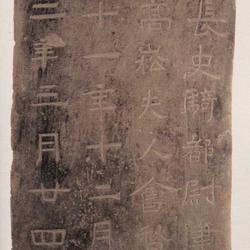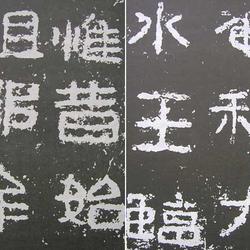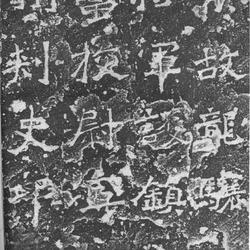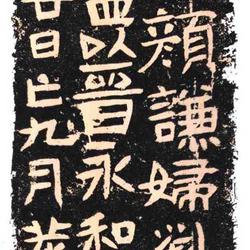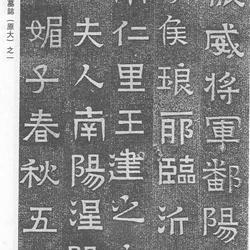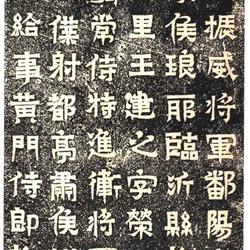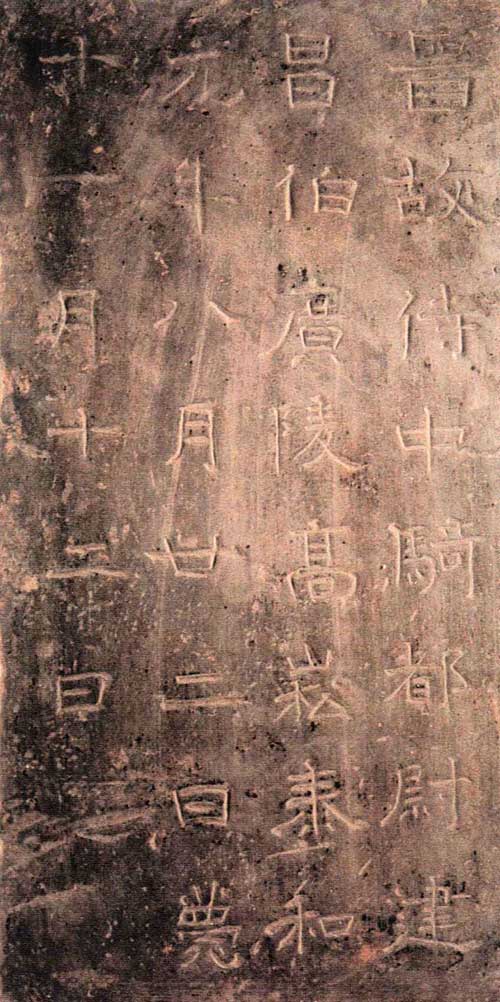
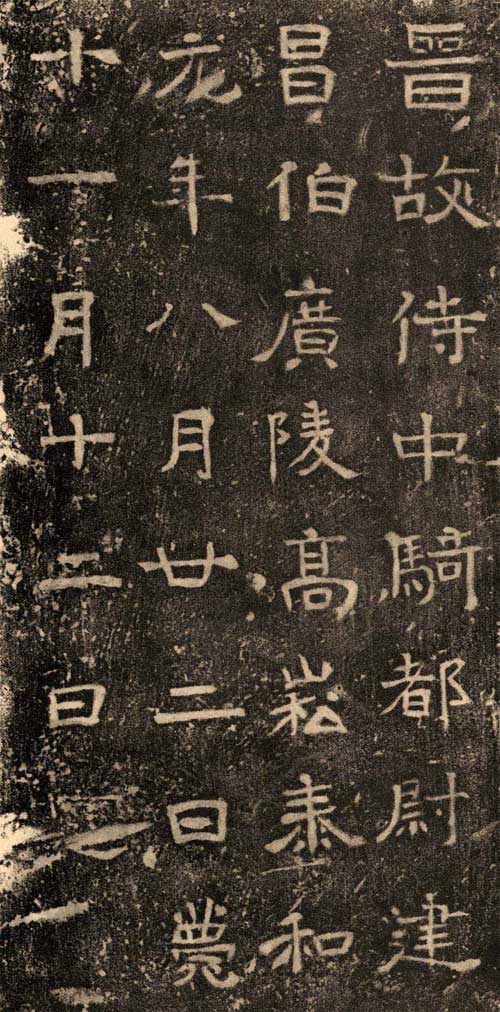
"Gao Song's Epitaph" from the Eastern Jin Dynasty is a large rectangular gray brick, inscribed with two swords on one side. The epitaph is 50.5 cm long, 25.2 cm wide and 6 cm thick.
This epitaph was unearthed in 1998 from the 16th Dynasty Tomb on the Xianlin Campus of Nanjing Normal University outside Xianhemen, Nanjing, together with the "Epitaph of Mrs. Gao Song Xie". The owner of the tomb, Gao Song, whose courtesy name was Maoyan, was from Guangling (now Yangzhou, Jiangsu Province). He was a famous official in the Eastern Jin Dynasty. He once served as a waiter and held a prominent position with considerable authority. Both "Book of Jin" and "Shishuo Xinyu" have been passed down. This annals has exquisite carvings, handsome calligraphy, and many fonts with strong regularity meaning, which provides a very important example for re-understanding the calligraphy of Jin people. The calligraphy of the epitaphs of these two parties is "Kaibian script", with exquisite carving work. They can be called rare masterpieces of inscription calligraphy in the Eastern Jin Dynasty. At the same time, because Gao Song lived in the same era and belonged to the same class as Wang Xizhi, the author of "Lanting Preface" who is known as "the best running script in the world", his epitaph calligraphy will undoubtedly provide information for the discussion on the authenticity of the handed down copy of "Lanting Preface" New clues. Compared with many Eastern Jin epitaphs unearthed earlier (such as "Xie Kun's Epitaph" unearthed in September 1964, "Wang Xing's Epitaph" unearthed in January 1965, etc.), its calligraphy is elegant and its craftsmanship is relatively less, showing that Developed higher calligraphy skills.
The Gaosong family tomb and the Wang family tomb in Xiangshan were rated as one of the top ten archaeological discoveries in China in 1998.
[Inscription]:
Gaosong, the former servant of the Jin Dynasty, the Cavalry Commander of Jianchang Bo Guangling, died on August 22nd in the first year of Taihe and passed away on November 12th. ("Epitaphs of the Six Dynasties Unearthed in Nanjing")

